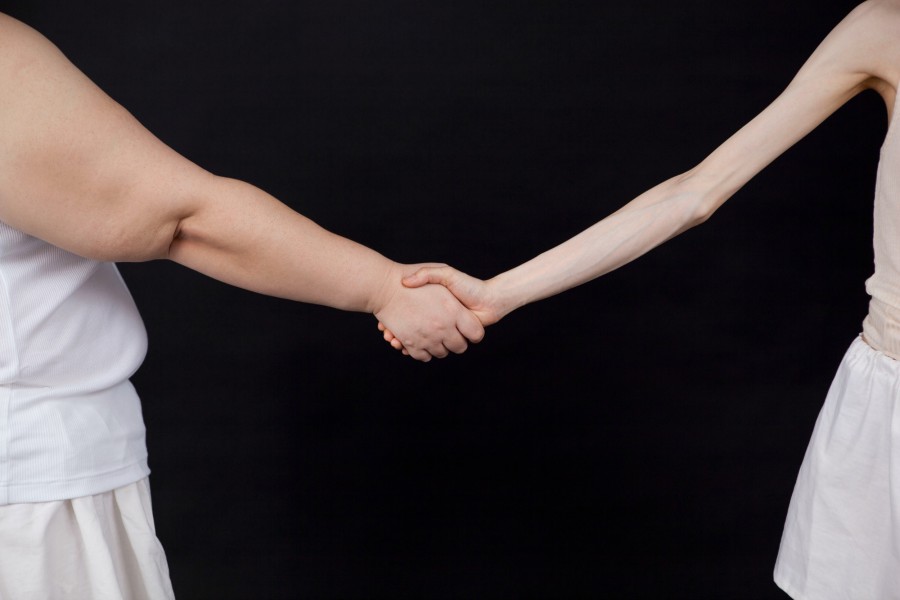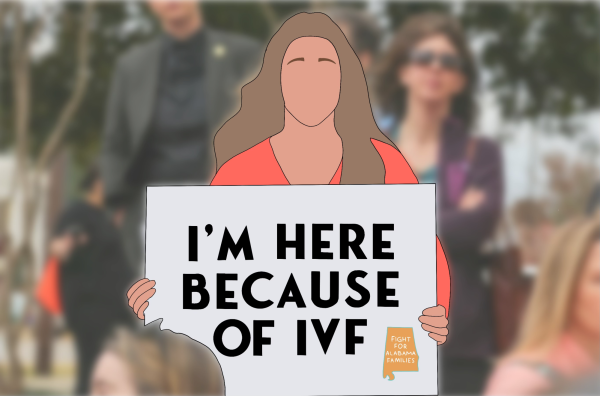Is Skinny Shaming a Thing?
Bullying someone based on their body weight perpetuates body shaming culture
Dec 6, 2014
Spurning somebody for their physical appearance, otherwise known as body shaming, has existed for decades. From head to toe, a person’s myriad imperfections are constantly spotlighted; this unfortunate fact, historically, has led to public discontentment and, on occasion, outright denouncement. Although light has been shed lately on fat shaming, a specific type of body shaming directed towards those possessing greater Body Mass Indices, another form of body humiliation has quietly been kept in the dark—skinny shaming.
Beauty standards in the United States demand for a woman to lack body fat almost entirely. This notion often leads to an often–clandestine onset of a plethora of different eating disorders, such as anorexia nervosa and bulimia. Regardless of the lack of attainability that characterize the so–called ‘perfect proportions,’ women and men who carry a bit of extraneous body fat are ridiculed and shunned. Throughout this year, fat shaming has received modest attention, following the creation of organizations that promote a healthy body image for adolescents. However, an obvious majority of these foundations solely target the heavier population, ignoring the dichotomous facet of the shaming dilemma, skinny shaming. People, specifically girls who are on the heavier side, are told to love their body and accept who they are, while girls falling on the lower end of the body mass spectrum are sometimes told by their heavier counterparts to “eat a burger” or are asked if they are anorexic.
“You should consider a person for who they are as a person… your brain is more important than anything else. I think skinny shaming is a problem; it makes people suffer when they tell others to gain weight or eat more. I don’t see why people do this,” said IB Spanish teacher Mrs. Verazain.
Although the majority will argue that skinny shaming is nonexistent in virtue of its lack of prevalence, the fact that a person’s body is being censured is bad enough. While masses are usually on the heavier side (with the American obesity rate resting at approximately 35%), fat shaming can be considered a more significant issue. Oftentimes, many teens resort to dangerous methods to help attain the ostensibly “perfect” image with over-exercising or under-eating. Unhealthy habits indubitably lead to consequences along the lines of deadly illnesses, infertility, and premature death. However, notwithstanding fat shaming’s pervasiveness in the United States and other Western countries, skinny shaming is equally important.
Despite popular belief, not everyone desires a skinny physique. Withal, bullying due to a slimmer figure can result in lesser known eating disorders like binging. Not only that, skinny shaming can be found everywhere in modern global culture, from the pop culture of the United States (a salient example being “All about That Bass” by Megan Trainor) to deeply–ingrained social norms in South Asia and Mauritania, which express a preference of heavier women. The clandestine prevalence of skinny shaming only contribute to a quickly-growing problem of body shaming. The fact that skinny shaming is hidden deep within mass media almost facilitates the widespread ignorance that so often besets this form of social stigmatization.
“I feel like overall judging people whether they’re fat or skinny comes from a place of insecurity… and so they tend to bash people if they’re too skinny or too fat… I feel like you should just do you,” senior Steven Suarez said.
Both skinny shaming and fat shaming are significant self-esteem issues that effect teens every day. By asking a skinnier person if they eat or telling a heavier person to skip a meal, one perpetuates body shaming culture. Beauty standards that negatively effect today’s youth are inevitable, but it is possible to mitigate it. Accepting people for how they look and not commenting on anyone’s physical appearance is a great way to start. After all, who cares how a person looks like if they have a good heart?






















